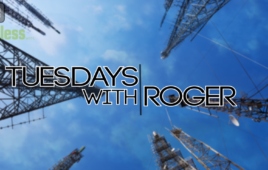The tug-of-war between carriers and broadcasters continues.
T-Mobile and the Competitive Carriers Association (CCA) redoubled their pressure on the FCC to hold to its proposed 39-month repacking schedule following the conclusion of the incentive auction, asserting there is “no basis” for delaying the transition as suggested by the National Association of Broadcasters.
According to ex parte notice filed by T-Mobile last week, the Un-carrier’s deployment of 700 MHz spectrum has “exceeded the company’s expectations for improving coverage” and T-Mobile is eager to light up any 600 MHz airwaves won in the auction with “equal urgency.”
T-Mobile pushed aside concerns about the rigidness of the 39-month schedule and funding by noting both that options for flexibility have already been suggested to the Commission and the FCC will be able to work with Congress to secure additional funding for the transition, if necessary. Thus, T-Mobile argued, there is “no basis for delaying the transition plan for reasons of funding or resource constraints, and strong public interest reasons for ensuring that the IATF’s proposed Transition Scheduling Plan is implemented in accordance with the 39- month timeline adopted by the Commission.”
T-Mobile’s recent meeting with the FCC was the back end of the latest round in what has been somewhat of a tag-team effort from the Un-carrier and CCA over the past year or more to hold the FCC to the 39-month schedule.
Two weeks earlier, CCA filed an ex parte of its own pushing the FCC to stick to the timetable.
“It is imperative that the Commission strike the appropriate balance to maintain flexibility along with certainty of phased completion dates, as wireless providers and other stakeholders have begun engaging in their own planning activities in reliance on these timelines,” CCA urged. “In rural America, the benefits of 600 MHz low-band spectrum are unquestionable.”
T-Mobile and CCA’s efforts are part of a battle against the arguments of broadcaster groups like the NAB, which in November 2015 asked the FCC to reconsider its 39-month deadline and instead develop a regional transition plan. At the time, an NAB spokeswoman told Broadcasting & Cable that its concerns were shared by unnamed wireless carriers.
According to both T-Mobile and the CCA, however, claims that the FCC’s proposed 39-month repacking deadline and $1.75 billion budget for the transition are insufficient are baloney. In fact, T-Mobile and the CCA continuously argued the opposite is true: it’s possible for station relocations to be completed both under time and under budget.
The back and forth, which began more than a year ago, has become more urgent as the spectrum auction churns slowly toward its close.
Earlier this month, the proceedings headed into a Stage 4 reverse auction after the Stage 3 forward auction closed flowing a single round. The Stage 3 forward auction came with a clearing cost of $40.3 billion, but BTIG’s Walter Piecyk has speculated that figure could drop to around $25 billion in the latest stage.
“If the Stage 4 reverse auction bogey drops to $26 billion, it would be within reach of forward bidders to end the auction,” Piecyk wrote in an early December note. “Bids would simply have to rise $2.1 billion (11 percent) to trigger the extended round and $6.5 billion (33 percent) to end the auction. If that is still too high, it would be on to Stage 5, which we estimate could deliver a $20 billion auction bogey. In that scenario, the amount of spectrum sourced to wireless operators would only be 60 MHz, and the auction would still have a shot at a Q1 close.”
Though many have placed the blame for out-of-reach clearing costs on broadcasters’ shoulders, an FCC official explained that’s not necessarily the case. More on that here.
The reverse auction proceedings have been on hold since Dec. 23 for the holidays, but are scheduled to pick back up with three one-hour rounds of bidding on January 3.
Filed Under: Telecommunications (spectrums)




